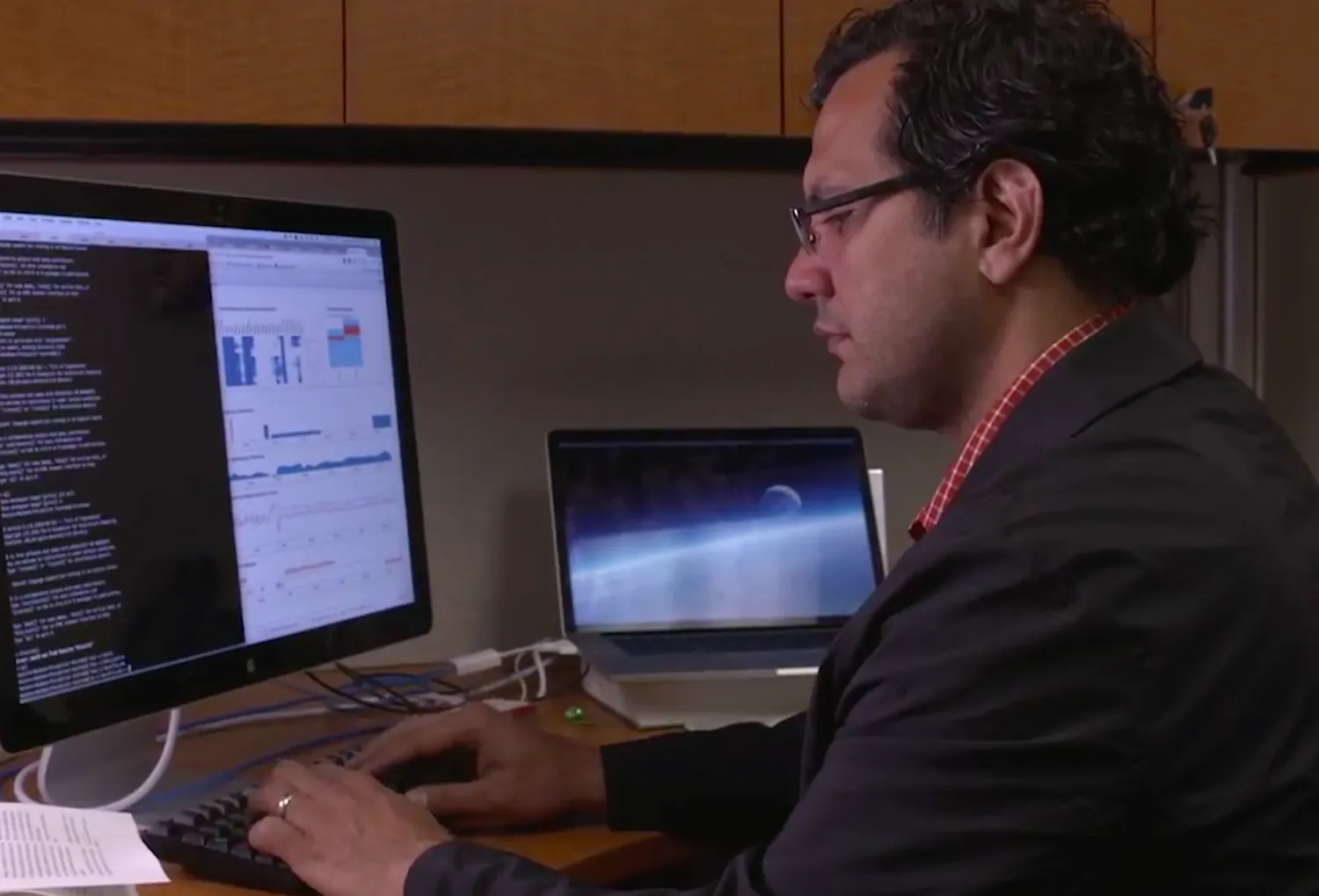
Héctor Corrada Bravo, an assistant professor of computer science with appointments in UMIACS and the Center for Bioinformatics and Computational Biology (CBCB), recently co-authored a paper that describes a novel approach for classifying tumor samples.
Corrada Bravo—working with computer science doctoral student Wikum Dinalankara—used an anti-profile method, which explicitly models increased gene expression variability in cancer in order to define robust and reproducible signatures for tumor progression and prognosis.
This new approach could be used as a better predictor of cancer survival rates or relapse for certain tumors, including those that cause lung, breast or colon malignancies.
The varying and numerous factors that lead to tumors continues to present a significant challenge to reliable molecular methods for detection and prognosis of cancer, Corrada Bravo says.
His most recent work in this area suggests that increased variability in gene expression of specific genes involved in tissue differentiation is a stable mark across multiple cancer types, and that robust genomic signatures can be obtained by measuring and modeling deviation from normal state in these genes, instead of building cancer-specific profiles.
In their experiments, Corrada Bravo and Dinalankara used a large, curated, repository of publicly available microarray datasets, representing samples from tumors and benign growths from multiple cancer types, along with samples from a large number of normal tissues. Using advanced statistical processing methods developed in CBCB, they estimated a variability-based universal gene signature able to distinguish benign from malignant tumors, and predict patient relapse or survival after treatment.
The Maryland researchers recently published the results of their work in Cancer Informatics.
Read more here.
To see a video overview of Corrada Bravo’s research, go here.
—Story by Melissa Brachfeld